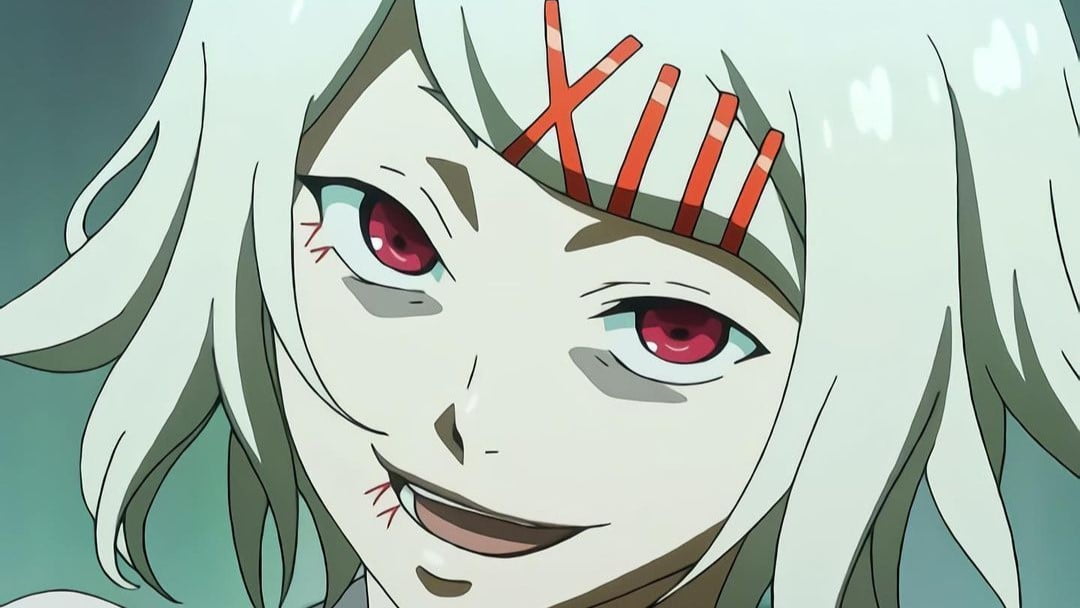Juuzou Suzuya’s tattoo in the Tokyo Ghoul series holds deep meaning and symbolism, making it a subject of fascination for fans and anime enthusiasts alike. This distinctive tattoo on his neck consists of the numbers “13” and “41” along with a butterfly symbol, each carrying its own significance. Join us as we delve into the intricate layers of this enigmatic tattoo and explore its hidden messages.
Key Takeaways:
- The numbers “13” and “41” in Juuzou Suzuya’s tattoo represent his past and the events that shaped him.
- The number 13 symbolizes rebellion and bad luck, while 41 mirrors the number 14 associated with death.
- The butterfly in the tattoo signifies transformation and self-discovery, reflecting Juuzou’s character arc.
- Juuzou Suzuya’s tattoo is a complex and multifaceted symbol, open to interpretation and reflecting the complexity of his character.
- The Tokyo Ghoul series utilizes tattoos to enhance storytelling and aesthetic, with Juuzou’s tattoo holding significant meaning within this context.
Exploring the Numbers: “13” and “41”
The numbers “13” and “41” in Juuzou Suzuya’s tattoo are key elements that hold deep meaning and offer insights into his past and complex personality. Let’s delve into the interpretation of these numbers and unravel the layers of significance they hold.
The number “13” has long been associated with bad luck and rebellion. It represents a sense of defiance and nonconformity, traits that are evident in Juuzou’s character. This number could symbolize the hardships and challenges Juuzou has faced throughout his life, along with his innate rebellious spirit. It serves as a reminder of his resilience and determination to overcome adversity.
On the other hand, the number “41” is a mirror image of 14, a number commonly associated with death. This inversion suggests a duality within Juuzou’s character, reflecting his complex nature. It implies that while death may surround him, there is also a possibility of rebirth and transformation. It hints at Juuzou’s potential for growth and the capacity for change.
Together, the numbers “13” and “41” form a juxtaposition that encapsulates Juuzou Suzuya’s past and present. They represent the contrasting forces within him, the darkness and light, the rebellion and transformation. This duality adds depth and complexity to his character, making him a captivating and enigmatic figure in the Tokyo Ghoul series.
| Numbers | Meaning |
|---|---|
| 13 | Bad luck, rebellion |
| 41 | Inversion of 14, representing death and transformation |
The Symbolism of the Butterfly
The butterfly symbol in Juuzou Suzuya’s tattoo represents transformation and the freedom to be oneself, adding depth and complexity to his character. As a prominent element of his tattoo, the butterfly serves as a profound symbol of change and personal growth. Just as a caterpillar undergoes a metamorphosis to become a butterfly, Juuzou’s journey in Tokyo Ghoul is marked by his own transformation.
The butterfly’s significance lies in its ability to transition from a humble creature to a magnificent and graceful being. This mirrors Juuzou’s own evolution from a troubled and damaged individual to someone capable of embracing their true nature. The butterfly’s appearance in his tattoo suggests that Juuzou has the capacity for change, and that his experiences have shaped him into a complex character.
Furthermore, the butterfly represents freedom and the power to be oneself. In the Tokyo Ghoul series, Juuzou struggles with his identity and finding a place where he truly belongs. The butterfly symbolizes his quest for self-discovery, as he navigates through the challenges and conflicts of his life. It serves as a reminder that he has the ability to break free from societal expectations and embrace his individuality.
In conclusion, Juuzou Suzuya’s tattoo holds great symbolism, and the butterfly is a key element that adds depth and complexity to his character. It represents his journey of transformation, self-discovery, and the freedom to be authentic. The butterfly in his tattoo captures the essence of Juuzou’s character arc in the Tokyo Ghoul series, making it a powerful and intriguing symbol.
| Tattoo Elements | Symbolism |
|---|---|
| Numbers “13” and “41” | Representing Juuzou’s past and significant events |
| Butterfly | Symbolizing transformation and freedom to be oneself |
Juuzou Suzuya: A Character Analysis
Understanding the meaning behind Juuzou Suzuya’s tattoo requires a closer look at his character traits, background, and the psychological factors that shape his actions. Juuzou is known for his peculiar personality and unpredictable behavior, which can be attributed to his troubled past.
Born into a harsh and abusive environment, Juuzou was forced to endure unimaginable pain and suffering from an early age. These traumatic experiences had a profound impact on his psyche, leading to the development of his violent and sadistic tendencies. His tattoo, with its intricate symbolism, serves as a representation of this inner turmoil.
Despite his troubled background, Juuzou possesses a childlike innocence that contrasts with his brutal nature. This duality is reflected in his tattoo, where the butterfly symbolizes the potential for growth and transformation. Just like a butterfly emerges from a cocoon, Juuzou’s character undergoes a metamorphosis throughout the series, gradually embracing his true self and finding a sense of purpose.
| Character Traits | Background | Psychological Factors |
|---|---|---|
|
|
|
It is important to note that Juuzou’s tattoo is not simply a decorative element, but rather a visual representation of his complex character. The layers of symbolism intertwined in the numbers and the butterfly reflect his personal journey and the internal struggles he faces. Through understanding and analyzing these elements, we gain a deeper appreciation for the profound meaning behind Juuzou Suzuya’s tattoo.
Tokyo Ghoul: Exploring the Anime Lore
Juuzou Suzuya’s tattoo is just one example of the powerful symbolism and visual storytelling found in the Tokyo Ghoul series, where tattoos play a significant role in conveying characters’ personalities and narratives. Tattoos in this world are not just mere ink on skin; they carry deep meaning and reflect the inner struggles and transformations of their wearers.
In Tokyo Ghoul, tattoos serve as visual representations of the characters’ past, their inner demons, and the choices they have made. They are not mere decorations, but rather intricate storytelling devices that add another layer of depth to the narrative.
One notable example is Ken Kaneki, the protagonist of the series, who undergoes a dramatic transformation and becomes a half-ghoul. He bears a distinct tattoo on his back, symbolizing his transition from a human to a creature caught between two worlds. This tattoo serves as a constant reminder of the challenges he faces and the new identity he must embrace.
Table: Symbolic Tattoos in Tokyo Ghoul
| Character | Tattoo | Meaning |
|---|---|---|
| Juuzou Suzuya | Numbers “13” and “41” + Butterfly | Symbolizes Juuzou’s past, transformation, and complexity |
| Ken Kaneki | Half-ghoul mask | Represents Kaneki’s transformation and the duality of his existence |
| Touka Kirishima | Rose | Represents Touka’s strength, beauty, and delicate nature |
These tattoos often become conversation starters among fans, sparking discussions and theories about their meanings and implications in the story. They add an extra layer of intrigue and symbolism to an already captivating series.
So, the next time you delve into the world of Tokyo Ghoul, pay close attention to the characters’ tattoos. They are not mere designs on their bodies; they are gateways to their past, reflections of their struggles, and visual narratives that deepen our understanding of their complex personalities.
Conclusion
The tattoo adorning Juuzou Suzuya’s neck in the Tokyo Ghoul series represents a complex web of meanings, offering a glimpse into his past, transformation, and the intricacies of his character. With the numbers “13” and “41” symbolizing significant events and the butterfly representing transformation and self-discovery, Juuzou’s tattoo holds a deeper significance that adds depth to his persona.
Throughout the series, Juuzou’s character is portrayed as violent and unpredictable, but the butterfly symbol suggests that there is more to him than meets the eye. It hints at his journey of self-acceptance and the potential for growth and change, despite his troubled past.
The numbers “13” and “41” in Juuzou’s tattoo contribute to the enigma surrounding his character. While the number 13 is often associated with bad luck and rebellion, the mirror image of 41 and its resemblance to the number 14, which represents death, adds further ambiguity. These numbers serve as reminders of Juuzou’s past and the experiences that shaped him, leaving room for interpretation and speculation.
In conclusion, Juuzou Suzuya’s tattoo is a visually captivating symbol that holds deep meaning within the Tokyo Ghoul series. It represents his past, his transformation, and the intriguing complexities of his character. Whether it be the numbers “13” and “41” or the butterfly symbol, the tattoo adds layers of depth and intrigue to Juuzou’s story, making him a captivating and enigmatic character in the world of anime.
FAQ
What is the meaning behind Juuzou Suzuya’s tattoo?
The tattoo on Juuzou Suzuya’s neck consists of the numbers “13” and “41” and a symbol that represents a butterfly. Its meaning is complex and open to interpretation, but it is believed to represent Juuzou’s past, transformation, and the complexity of his character.
Why are the numbers “13” and “41” significant in Juuzou’s tattoo?
The number “13” is associated with bad luck and rebellion, potentially representing Juuzou’s tumultuous past. The number “41” can be seen as a mirror image of “14,” which symbolizes death. Together, these numbers highlight important events and experiences that have shaped Juuzou.
What does the butterfly symbolize in Juuzou’s tattoo?
The butterfly represents transformation and the freedom to be oneself. It is a symbol of Juuzou’s journey of self-discovery and acceptance. Despite his violent and unpredictable nature, the butterfly suggests that there is more to Juuzou than meets the eye.
What does Juuzou Suzuya’s tattoo reveal about his character?
Juuzou Suzuya’s tattoo reflects his complex personality and inner struggles. It showcases his past, his transformation, and the intricate layers of his character. The tattoo serves as a visual representation of Juuzou’s experiences and the growth he has undergone throughout the Tokyo Ghoul series.
Are there other significant tattoos in the Tokyo Ghoul series?
Yes, tattoos play a significant role in the Tokyo Ghoul series and contribute to its overall aesthetic and storytelling. Other notable tattoos include those of other characters, each with their own unique meanings and symbolism.






